Tesla update brings Faraday Future-rivalling performance boost
'Ludicrous Plus' mode could see P100D models achieve 0-60mph in 2.34secs, Elon Musk says
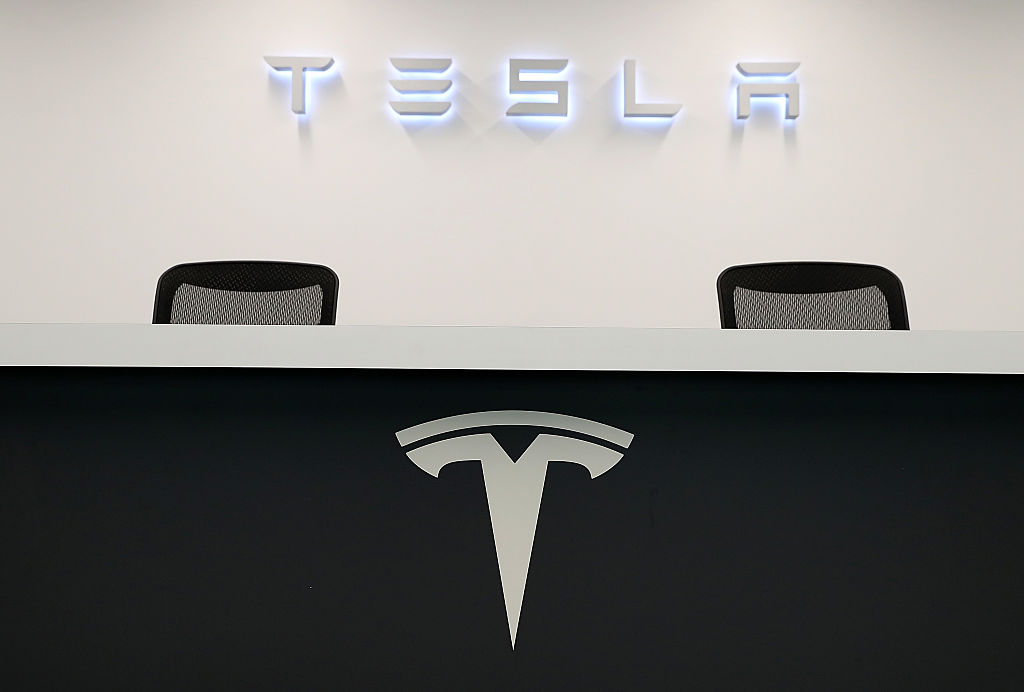
A free daily email with the biggest news stories of the day – and the best features from TheWeek.com
You are now subscribed
Your newsletter sign-up was successful
April 28
Tesla could have plans to build an electric car even more affordable than its upcoming £30,000 Model 3.
Chief executive Elon Musk hinted at the company's ambition to deliver a cheaper model at a transport solutions conference in Norway last week.
The Week
Escape your echo chamber. Get the facts behind the news, plus analysis from multiple perspectives.

Sign up for The Week's Free Newsletters
From our morning news briefing to a weekly Good News Newsletter, get the best of The Week delivered directly to your inbox.
From our morning news briefing to a weekly Good News Newsletter, get the best of The Week delivered directly to your inbox.
"There will be future cars that are even more affordable down the road," he told delegates.
During March's reveal of the Model 3, Musk said it was the culmination of a four-stage plan to deliver affordable electric cars to the masses, starting off with luxury goods such as Tesla's debut Roadster, its Model S executive saloon and the Model X SUV, before making a much more mainstream offering.
However, as "affordable" as the Model 3 is, Musk told the conference it was "designed such that roughly half of people can afford the car".
This will eventually change, "with fourth generation and smaller cars and whatnot, we will ultimately be in a position where anyone can afford the car", he added.
A free daily email with the biggest news stories of the day – and the best features from TheWeek.com
Musk didn't spell out just how cheap the firm plans to go, or the timeframe for the fourth generation Tesla, but his words have sparked speculation that a car is in development.
According to Auto Express, previous rumours have strongly hinted Tesla will introduce a smaller crossover using the Model 3's platform as its next production vehicle, possibly called the Model Y. However, Musk's words have led to many touting Model 4 for the name.
It could be something entirely different, possibly a small, electric city car, adds the publication, which predicts the reveal could take place in 2018.
Tesla Autopilot 'cuts accidents by 50 per cent'
25 April
Tesla Autopilot's suite of autonomous driving functions reduces the chances of having an accident by 50 per cent, according to the company's chief executive.
It's a big claim and picked up by Electrek, who quote Elon Musk speaking in Norway, where he said that even the very first version of the system is "almost twice as good as a normal person" at detecting and avoiding accidents.
The site adds that the second generation Autopilot, which should be fully autonomous, will need to be significantly safer still in order to convince lawmakers to allow drivers to pass on responsibility to their cars.
Autopilot 2 could be out in two years, tying in nicely with the introduction of the Tesla Model 3, Musk's "affordable" car which will come with the hardware and safety features as standard.
Developing the system requires extensive testing miles, but Tesla claims that the 47 million miles drivers of its cars have already clocked up since Autopilot was launched in October 2015 gives the company a rich bank of data.
In its current form, Autopilot extends to self-driving capabilities on roads such as motorways. The system takes over steering control, braking and acceleration while the car reads white lines to stay in lane. It is not designed for use on roads around towns and suburbs yet.
However, given the nature of most commutes, "the car can effectively drive itself for many miles", says the International Business Times.
Tesla owners to get a free Autopilot trial
19 April
Tesla has stated its self-driving intent once more and offered drivers a one-month free trial of its Autopilot semi-autonomous software.
"It's basically an in-app purchase for a $80,000 car," says The Verge, as the system is being offered as an over-the-air upgrade to those Tesla models which can take the technology.
Elon Musk's company is banking big on self-driving cars becoming mainstream technology within the next few years and has been offering cars with its Autopilot hardware since October 2014, drip-feeding free new features to the vehicles in a slow march towards full autonomy.
Autopilot costs £2,100 on new cars or can be fitted retrospectively via download for £2,500. By offering a month-long trial, says Fortune, Tesla is not only taking a maverick approach to marketing the feature, but could also be using the scheme to further develop its autonomous system. Additionally, it opens up the possibility of greater revenues from software downloads.
"Tesla, which has only shipped a little over 100,000 cars since its founding, uses machine learning and data from drivers to make its autopilot software better," says the magazine.
Put simply, the more people with the feature, the more miles the system does as a whole, giving engineers more data to use to make the software smarter. As such, customers are routinely "guinea pigs" for the company.
Electrek reckons those Tesla owners who haven't already specced Autopilot on their cars won't mind being used in this way and that the initiative will be "very successful in selling the update to the minority of Tesla owners who didn't add it when they configured their car".
The site thinks that once non-Autopilot drivers have incorporated the features into their daily commutes, they'll be hooked and that it would be "hard to believe someone would let them go for a price equivalent to roughly 3-5% of the value of the vehicle".
Regardless, that three to five per cent still represents a pricey optional extra, albeit a big one - for the money, drivers get automatic steering, speed, braking and lane-changing on motorways, as well as self-parking with a "summon" feature.
World's first Tesla limousine – see the video
14 April
While Tesla is busying itself for the release of its smaller Model 3, others have loftier, more luxurious ambitions for the company's current offerings.
A US-based limousine hire firm has turned a Model S – now £58,300 after its recent facelift - into the world's first Tesla stretch limo.[[{"type":"media","view_mode":"content_original","fid":"93506","attributes":{"class":"media-image"}}]]
Posting video proof of their endeavours, Big Limos stripped the car down to its barebones, removing the bed of 7000-plus individual lithium ion battery cells from the car's floor, before using power tools to cut the saloon in half.
The company has since posted a picture of the new, elongated car on its Facebook page and orders are already being taken.
While it's the first Tesla to get the limousine treatment, it's not the first electric car to sprout an extra section – Big Limos previously elongated a Nissan Leaf, a key rival to Tesla's upcoming Model 3.
According to Autoblog, with the popularity of electric vehicles expected to grow in the future, knowing how to spin them into limousines is a "sure fire way of beating the competition".
The site adds that the conversion does not have support from Tesla officially, but that Big Limos is hoping Elon Musk's firm recognises their efforts in the future.
The conversion costs anywhere between $100,000-$200,000 (£70,000-£140,000) depending on trim level – on top of the cash you'll have to stump up for the donor Tesla.
Electrek is less than enamoured by the stretched Model S though, saying it's "cringe-worthy" if you're a Tesla enthusiast.
Tesla unveils its revamped Model S saloon
13 April
Tesla has confirmed rumours that it is to introduce a facelifted version of its Model S flagship saloon, releasing an updated version of the car with a refreshed front end and new options and tech available.
Most strikingly, the front of the car has been overhauled, with an updated grille setup mimicking that of the marque's SUV, the Model X.
Gone is the black surround, replaced by a colour-coded fascia with a smaller grille, which feeds into the bonnet with a much sharper lip than that of the older car. There are new LED headlights, too, and the taillights have been tweaked.
Tesla has also granted the Model S the same HEPA filtration system found on the SUV, which is, according to Electrek, "100 times more effective than all other premium automotive filters".
One of the big tech additions is in the charging system, which has been upgraded from 40amps to 48amps, enabling a quicker charge time from high-voltage charging sources.
Buyers will also get the choice of two new interior trims – figured ash wood and dark ash wood options are now available.
However, there are no changes to powertrains and the performance. Earlier this year, a hacker outed a potential P100D version of the Model S with a 100kWh battery pack as being on the firm's radar and many expected the new powertrain option to be introduced alongside the facelift. But for now, the 762bhp, all-wheel drive P90D with Ludicrous mode remains the quickest car in the Tesla stable.
Production is starting immediately, meaning any orders from today will be for the new specification. Prices have climbed slightly, though. The Model S will now start from £58,300 before the £4,500 government grant, representing a premium of £965 over the outgoing model.
Tesla also introduced a new 80amp wall-connector charging system for the home, with a price cut over the older version, and added a 75kWh battery pack option for the Model X SUV.
Tesla reveals Easter egg as 2,700 cars are recalled
12 April
Tesla chief executive Elon Musk has revealed a hidden Easter egg in some of the company's cars - right as the firm recalls thousands of its Model X SUVs for faulty rear seats.
The feature can be found in Tesla cars with Autopilot. Turning the function on and off four times in quick succession activates starts off a Mario Kart-style mode on the dashboard display, which normally shows the car "driving" down the road, complete with lane markings and traffic.
"Normally it's a boring grey road, but if you engage Autopilot four times in a row, you get Rainbow Road from Mario Kart instead," says The Verge.
Some Tesla owners took to the road - and Twitter - to test the theory.
The "psychedelic cowbell road" isn't the first Easter egg to creep into Tesla's software. Last year, a hidden James Bond mode turned the display car into the Lotus Esprit submarine from The Spy Who Loved Me, a vehicle Musk reportedly bought.
Not all are enamoured by the gimmick, however. The Guardian says it could be a crafty PR stunt, playing up to "fanboy nostalgia" to detract from Tesla's recall of 2,700 of its Model X SUV over fears the third row of seats could collapse in an accident.
The newspaper adds that Tesla is "no stranger to recalls", highlighting the 90,000 Model S cars called back over a possible defect with the front seatbelts in November 2015.
Tesla has rolled out "hidden in jokes" from the Hitchhiker's Guide to the Galaxy, Spaceballs, and James Bond during previous recalls, leading the paper to ask: "Are these Easter eggs, or distraction tactics?"
Tesla Model S to get facelift and 'bioweapon defence mode'
11 April
Tesla could introduce a facelifted version of its Model S saloon and a new range-topping P100D model next week, alongside the UK debut of the Model X SUV and launch of the car's configurator on the Tesla website.
According to Auto Express, details are scarce at the moment, with US-based sources claiming a "slight visual refresh on the nose" could be joined by the addition of LED headlights and additional paint colours. The changes aren't said to be directly influenced by the recently revealed Tesla Model 3, though the two cars should be "more closely aligned", suggesting that the older model is bound for a simpler, cleaner look.
Additions are also tipped to emerge on the inside. The Model S should get the same front seats as the Model X, to make them both heated and ventilated.
Adding to the styling changes, a new, more powerful 100kWh Model S could join the line-up, a rumour first suggested by a hacker who found reference to a P100D model in one of the company's Firmware updates.
Should such a vehicle emerge, Auto Express speculates it could do 0-62mph in as little as 2.7secs, combined with an all-electric range of 330 miles.
Tesla recently removed the 85kWh version of its saloon from its range in a bid to simplify it, leaving a 70kWh car with the option of all-wheel drive and two 90kWh all-wheel drive options the only ones available, so the P100D would mark the return of three different powertrains.
One of the more interesting additions is picked up by The Verge, which says a "bioweapon defence mode" air filtration system, currently fitted on the Model X SUV, is coming to the Model S. Road & Track calls it a "truly Muskian gimmick", in reference to Tesla chief executive Elon Musk.
Tesla 'hubris' to blame for Model X production delays
06 April
Tesla customers hoping to see their Model X SUVs soon will be disappointed, after the company said deliveries have been hit by a series of parts shortages.
The company blamed its own "hubris" for the delay, something chief executive Elon Musk admitted in February, when he said that the car had been "over-engineered".
In total, Tesla delivered 14,820 cars across its entire range in the first three months of this year, more than 1,000 short of its 16,000 target. Of those, 12,420 were the Model S, with the Model X only accounting for 2,400 deliveries.
The delivery count was "impacted by severe Model X supplier parts shortages in January and February that lasted much longer than initially expected", said the company, adding it has now ramped up production to 750 cars a week.
The parts shortage involved only six of the 8,000 components used to make the Model X, says the BBC, but the car's "falcon doors" have been a perennial problem.
As a result, Tesla's share price fell 3.5 per cent, reports Carscoops, cutting into the four per cent gain it had made immediately following the reveal of its next car, the Model 3.
Despite the first quarter miss, Tesla "scores points for honesty", Bloomberg says.
However, the news fuels doubts over whether the company will be able to deal with the huge demand for the Model 3 – almost 300,000 pre-order deposits have been taken since the car's unveiling on 31 March and Musk himself has said they will have to think hard to come up with a way to increase production.
Tesla Model S takes on Boeing 737 in drag race
05 April
In one of the cooler PR stunts for new business collaborations you're likely to see, Tesla Motors pitted one of its Model S P90Ds against a Qantas Boeing 737-800 in a two-mile drag race in Melbourne, Australia. [[{"type":"media","view_mode":"content_original","fid":"93104","attributes":{"class":"media-image"}}]]
The Qantas video shows the early advantage going to the road car – not surprising when you consider a P90D fitted with the Ludicrous Mode will do 0-62mph in just 2.8secs. But then the jetliner builds up speed and eventually lifts off at the end of the video.
"We'll call it a draw, then." says The Independent.
According to The Drive, the Tesla and the Boeing are "more or less diametrically opposed when it comes to how they accelerate".
The instantaneous torque of the 90kWh motor of the Model S means it gets off the line "like the Road Runner on meth", in comparison to plane, which "builds speed the way a man steps into a hot jacuzzi on a winter night", its engines eventually spooling until it cruises at Mach 0.8 (614mph).
The action is fairly predictable, but "still... there's something so damn entertaining about watching these two marvels of modern technology face off side-by-side and blast down their respective runways", The Drive adds.
The stunt is not to dissimilar to the race BBC Top Gear staged in 2007, when Richard Hammond took on a Eurofighter Typhoon in a Bugatti Veyron. [[{"type":"media","view_mode":"content_original","fid":"93105","attributes":{"class":"media-image"}}]]
The P90D is currently Tesla's fastest offering, but the 737 could face a new challenger soon – a hacker recently outed that Tesla may have a 100kWh P100D in the pipeline.
-
 What are the best investments for beginners?
What are the best investments for beginners?The Explainer Stocks and ETFs and bonds, oh my
-
 What to know before filing your own taxes for the first time
What to know before filing your own taxes for the first timethe explainer Tackle this financial milestone with confidence
-
 The biggest box office flops of the 21st century
The biggest box office flops of the 21st centuryin depth Unnecessary remakes and turgid, expensive CGI-fests highlight this list of these most notorious box-office losers
-
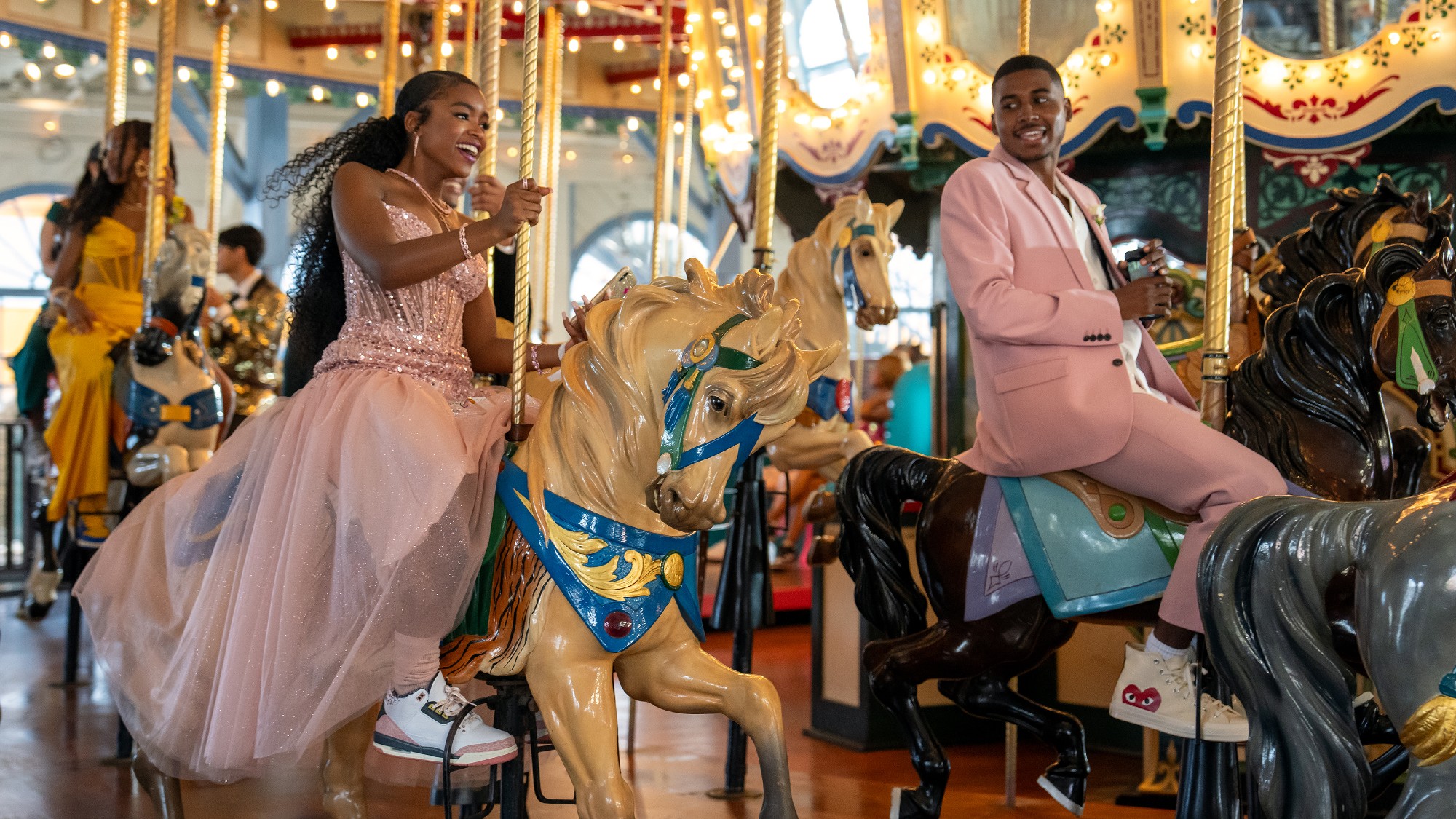 The best drama TV series of 2025
The best drama TV series of 2025the week recommends From the horrors of death to the hive-mind apocalypse, TV is far from out of great ideas
-
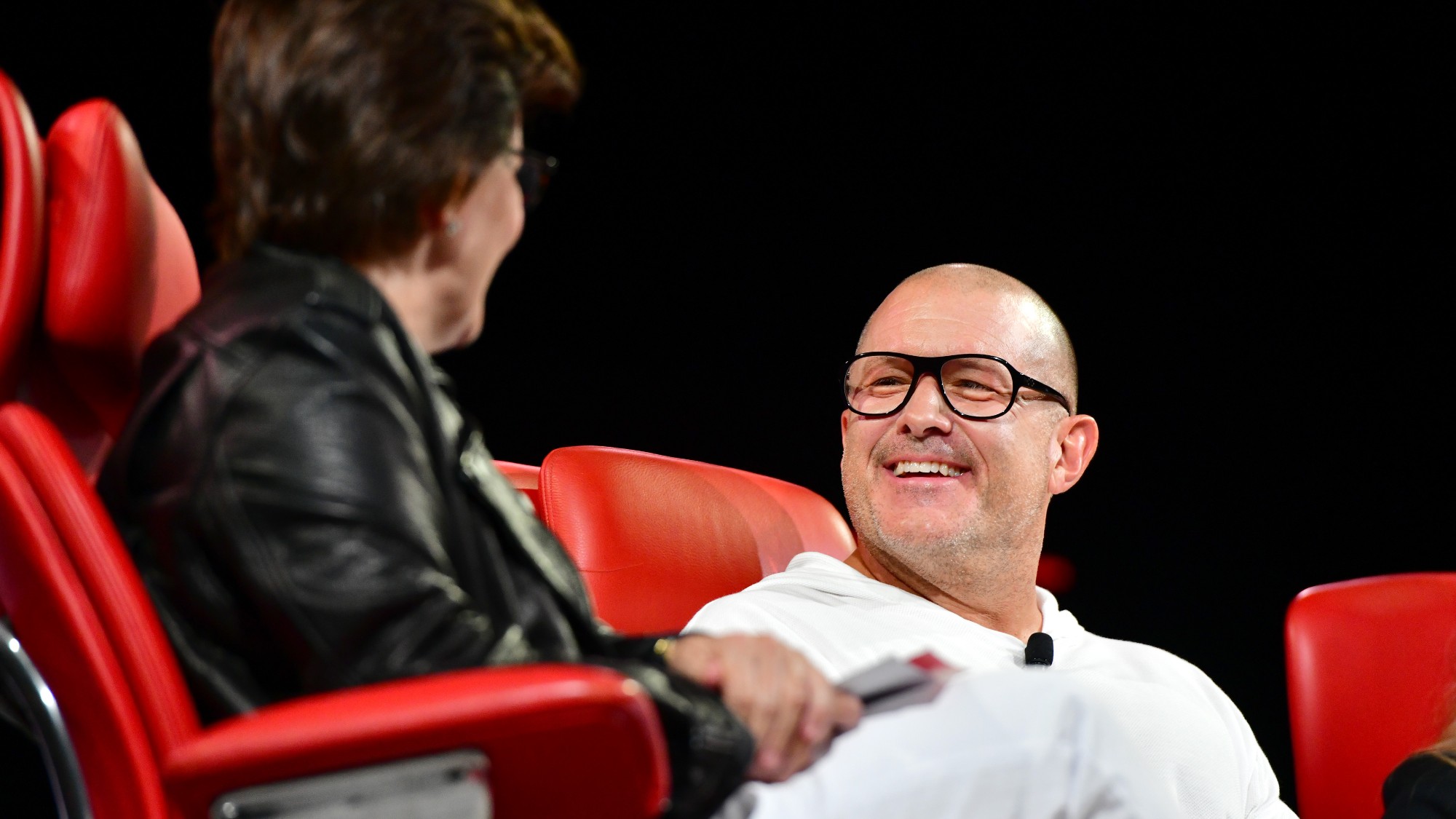 Jony Ive's iPhone design changed the world. Can he do it again with OpenAI?
Jony Ive's iPhone design changed the world. Can he do it again with OpenAI?Talking Points Ive is joining OpenAI, hoping to create another transformative piece of personal technology. Can lightning strike twice?
-
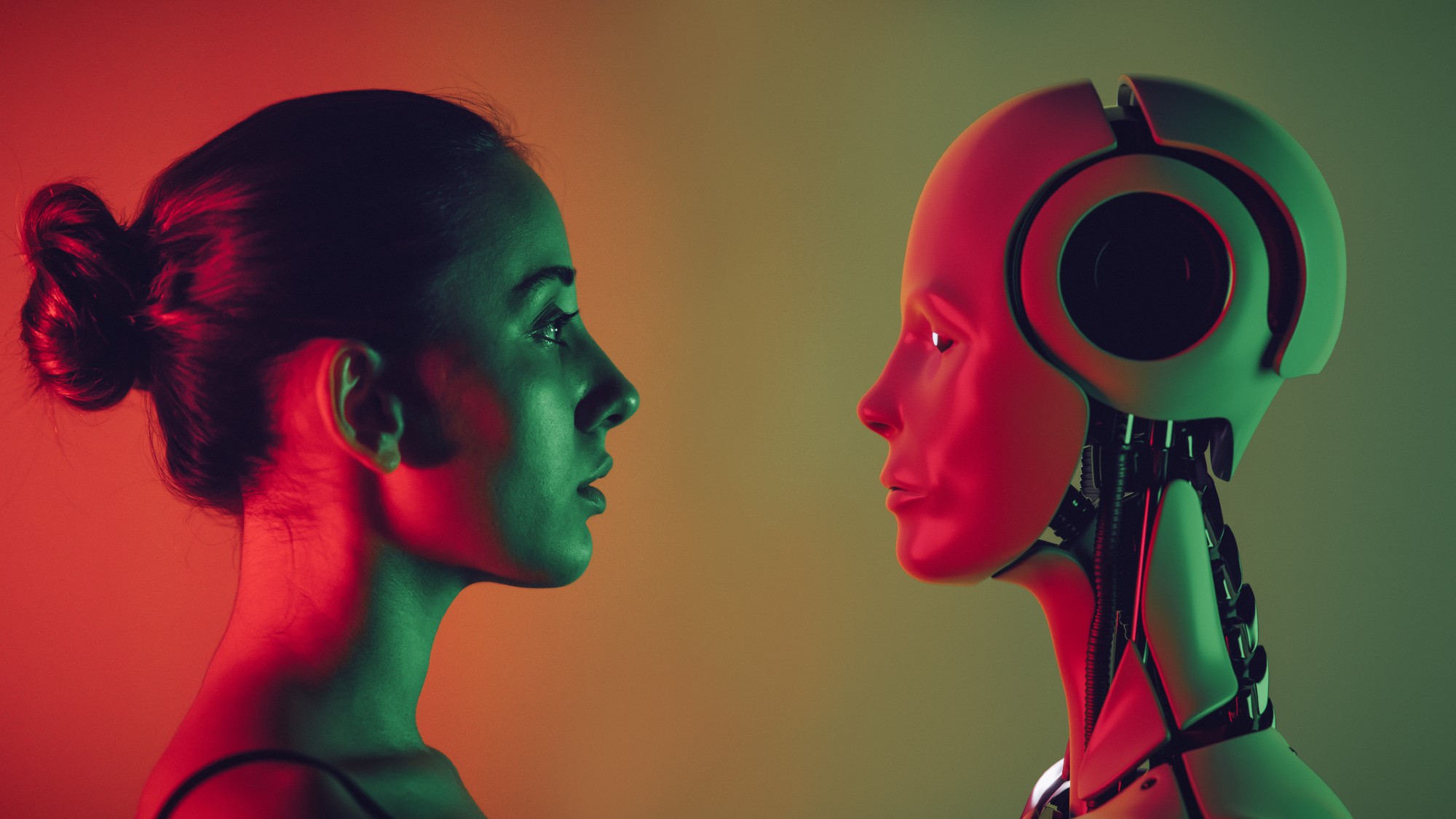 'Severance' and the best tech dystopia shows
'Severance' and the best tech dystopia showsThe Week Recommends If the Apple TV+ hit increased your appetite for bleak futurism, you have additional options
-
 The best TV series with multiple timelines right now
The best TV series with multiple timelines right nowThe Week Recommends Narratives that spend significant time in two or more stories can be especially rewarding
-
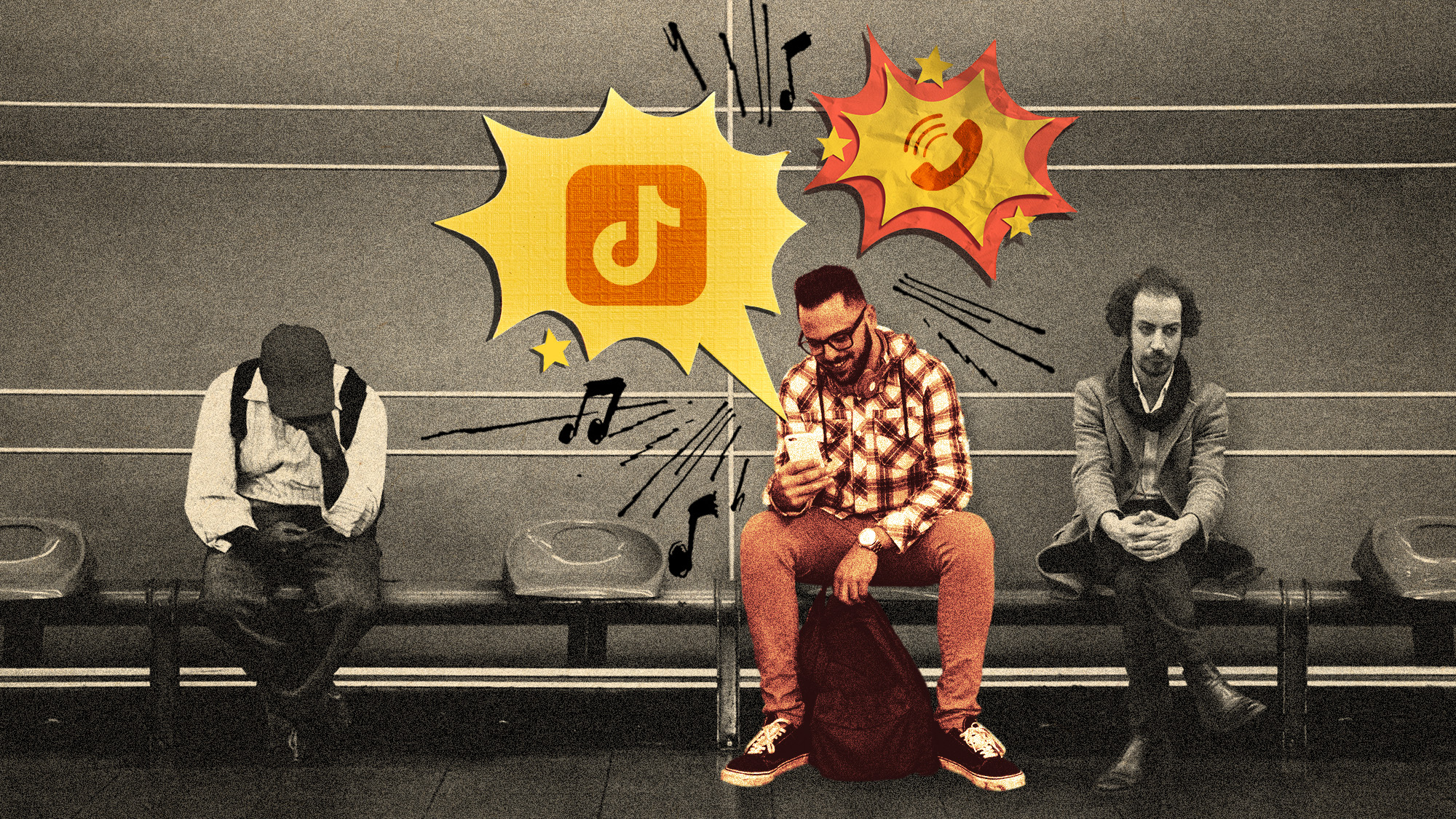 A not-so-quiet place: Why is no one using headphones in public anymore?
A not-so-quiet place: Why is no one using headphones in public anymore?Under the Radar People are increasingly comfortable with both speakerphone and watching videos (very) out loud
-
 5 stellar TV series based on award-winning novels
5 stellar TV series based on award-winning novelsThe Week Recommends Max's 'The Sympathizer' is not the only successful adaptation of prestige fiction
-
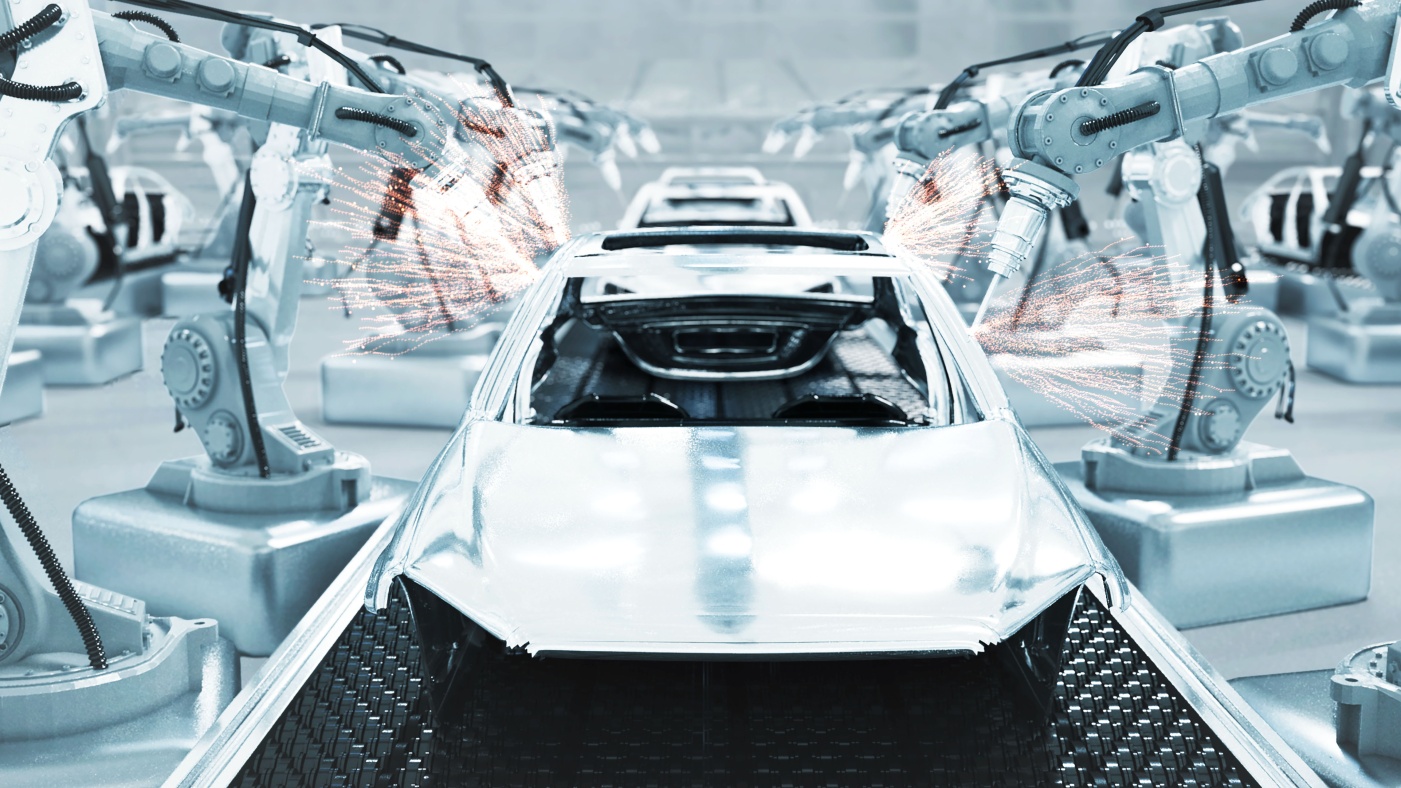 EV market slowdown: a bump in the road for Tesla?
EV market slowdown: a bump in the road for Tesla?Talking Points The electric vehicle market has stalled – with worrying consequences for carmakers
-
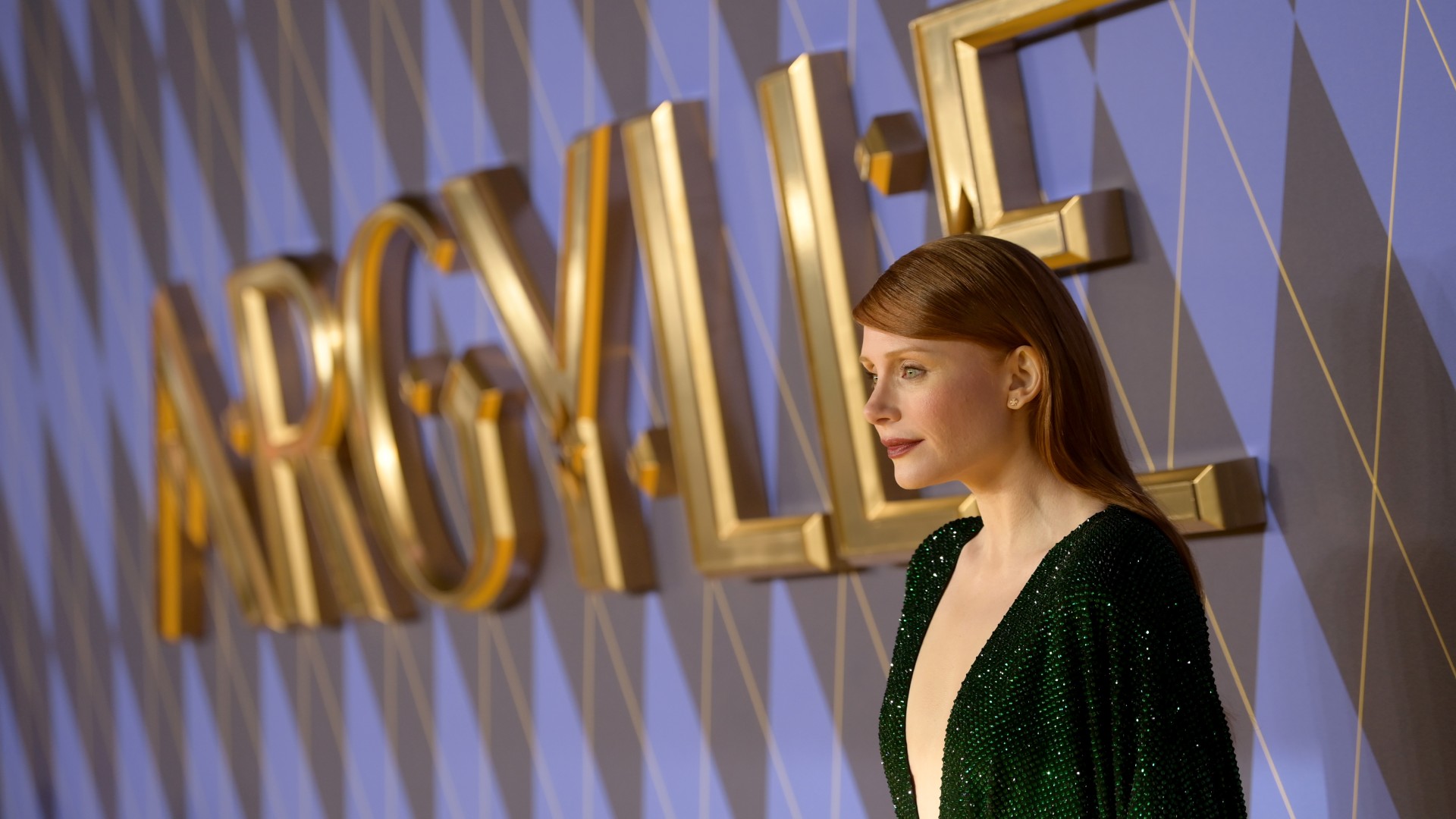 Movies to watch in February, from 'Argylle' to 'Drive-Away Dolls'
Movies to watch in February, from 'Argylle' to 'Drive-Away Dolls'The Week Recommends A spy thriller tied to a real-life mystery, a solo Coen brother feature and more